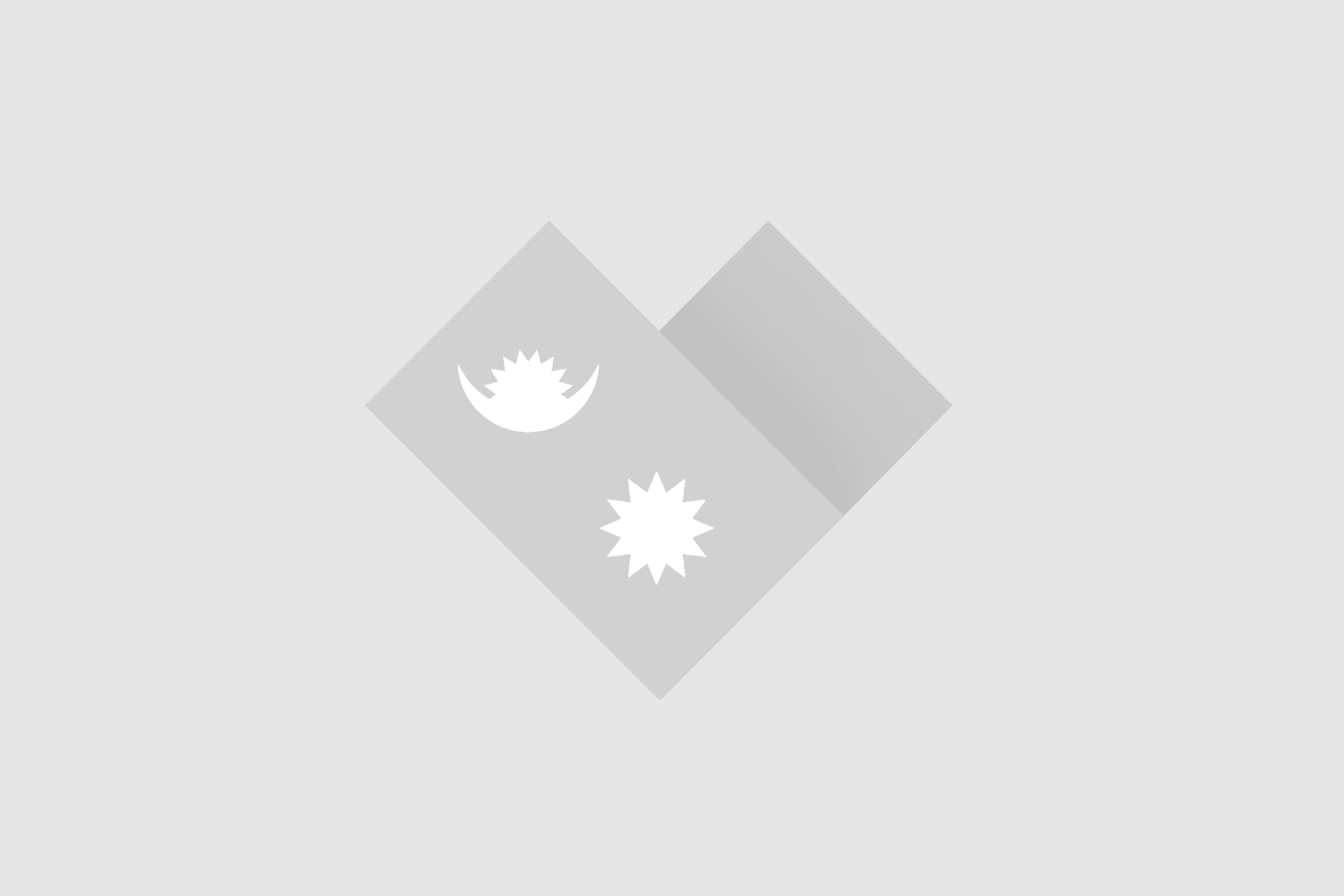
As a part of the Gen Z, I am not much aware of how life was under the monarchy, especially around 2030 to 2064 BS. How stable was the country? How much were income taxes? What state facilities were there for the people? Were people free to move out of the country or start their own company as they please?
I feel like life under monarchy is quite overromanticized by people, especially by Gyanendra and Paras followers.
View on r/IndianStockMarket by FactorComfortable745
Related:


I grew up in the 90s as a kid after democracy restoration and have lived many places. King birendra was more popular, as he had liberal views but was cornered in palace politics.
Nepal’s kings have had all the powers conferred by the 2046 BS constitution but political parties were always skeptical and would turn any of their failures towards palace, like they do against India/ USA/EU lately. Palace politics was not straight, always dirty but confined inside four walls.
But palace would protect their immediate family members no matter what. Example killing of a gurung singer in accident, rape abuses, beating up Ram krishna dhakal etc. King had power but power was excercised by his favourites and appointed people. I think monarchy would have survived if Dipendra had not gone mad about Devyani or either Birendra/Dipendra was alive to date.
Nepal was a horrible place to live. Majority people could not afford proper clothes like they do today. You could tell who belonged to middle class family by attire. Nepal was extremely poor with limited road , electricity, water and health access because I lived in 5 cities except Kathmandu.
Maoists insurgency was brutal and horrible. Royal massacre was sad. Nepal army also terrorized people just like maoists. I still do not think Nepal Police or Army understand value of democracy and people’s power till today. Nepal was stuck for 10 years up to 2063 BS.
People were distributed passports at will, citizenship at will, land at will , selected for public service at will, employees in corporation at will etc etc. Not sure if monarchy is only responsible but political parties also had a role to play.
I recall studying per capita income of Nepal $341 dollars in 2006. Government section officer salary was 12k/month in 2007/08. Kerosene was yellow and around Rs.10 per litre in 2055 BS until it became blue. Electric heaters and stove were used for cooking. There would be occasional shortage of kerosene.
I am surprised how Nepalese forget all events to deeply romaticize the past. Girija Prasad or Subash Nembang or any other leaders of the clan are a curse for this country, including monarchy.
Only exceptions are BP, Madan and Krishna pd bhattarai. I have high regards for Pradeep Giri, nepal will not get a intellect like him anytime soon. But problem with good people is that they are surrounded by idiots and cannot forsee or do what they want all their term.
Monarchy could have done a lot of things but it never communicated on a people to people level or appointed someone who could drive this country for long awaited prosperity. Gyanendra had his chance but he could not handle it, nor he could appoint experts to resolve the issue. See how UK monarchy does it. Example: prince Harry went to Afganistan to fight for his army. What did dipendraor paras or nirajan or gyanendra do for this country to become popular. See the medals on their chest. How come are they different from the ones distributed by current Nepal governement?
Current leaders are from same generation, making same mistakes in a different political setting. It is high time people become pragmatic instead of emotional and vote keeping new party & generation in mind.
So Democracy should be better. People’s access to health , education and infrastructures should be better. Our democracy should be institutionalized sooner to get somewhere. I would say this one thing **Never vote *Congress Emale or Maobadi* or their tail parties your lifetime and changes will start to happen** . That is the hope moving forward.
My parents used to say panchayat kaal ma raja ko bare k pani bolna didaina thiyo like north korea. Nepal ko murti bidesh ma bechne dheki ahile tyo tukucha khola jasto jamin haru bechne raj pariwar and relatives sanga link cha. Birendra ra gyandendra ko bela mero generation ho. Bacha ma raja auda hamro raja hamro desh pran bhanda pyaro cha bhanera ratan lagauthiyo. I never used to say it. Nepal ko budget ma certain amount of gdp expenditure raj pariwar ko lagi chutaunu parthiyo. Royal families haru lai immunity nai thiyo against any crimes as we know how paras kill one singer while riding his bike and nothing happen. Load Shedding hunthiyo, no development, political instability, no free market, nepal world ko 2nd poorest country nai thiyo, india influence ahile bhanda dherai thiyo. Jo raj pariwar sanga najik thiyo they become rich and have opportunities.
I grew up in 80’s and left Nepal for studies abroad in mid-nineties. I have been back a few times since then.
1. Nepal was extremely poor when I was growing up. There were a few rich people, mostly families and businessmen connected
to royalty . The middle class was small. The rest of the country was dirt poor. We used to hear that Nepal was the 8th poorest country in the world.
2. There were very few industries and businesses and so the job prospects were limited. The only good jobs were government jobs and maybe 2 or 3 banks that existed then. There as only one airlines.
3. Media was controlled by the State. Our choices for news were mostly Govt owned media like Gorakhapatra and Nepal TV, which ran the Government propaganda. There was only one university -TU.
4. During Panchayat, there used to be limited election but the prime minister used to be appointed by the King. The king would periodically fire government and appoint a new PM, which seemed arbitrary. Political opponents and even the elected parliamentarians sometimes were jailed for speaking against the royalty.
5. Each zone (anchal) used to have a governor (anchaladhis) appointed by the king. They had unlimited power.
In early Nineties, multi-party democracy was established after a popular movement. Things looked promising initially. Many new businesses opened up such as airlines, banks, newspaper, radio, TV, hotels, manufacturing (carpets, garments), private hospitals; medical colleges, universities, etc. Many jobs were created. There was optimism in the air but it was short lived. Girija was a PM with a strong majority but he dissolved the parliament because of his ego. After political instability started since nobody received a majority and things went downhill. Maoist insurgency starred as well.
They used to run government like puppets from behind before Gyanendra directly took over the government. There was no press freedom. Royals and their relatives used to run every things like cartel from big private businesses(tobacco hotels) to NGOs and you couldn’t criticise them. You can still find plenty of news articles that says Royals were first to smuggle old artefacts out and we’re bringing contrabands to Nepal since they were exempt from bag checking in airports.
Propaganda was pervasive from social studies books in school to national TV and radio( they were the only communication available). The concept of indigenous identity and social diversity was actively suppressed and you get killed for that. Society was very backward interms of women rights and Dalit issues.
To sum it up it was pure hell for general people but if you were close with royals than it was heaven.
99.9% of the users in the sub have never lived under monarchy, a huge majority were babies or born after gyanendra left the palace.
So, how would anyone here know. Anyone here who says this or that is just guessing.
Its was different before 2045 bs because there was a panchayat system. After 2045 bs there was multi party democratic system. As someone who grew up in 90s, i can share some of my experience.
Early 90s Nepal was pretty stable but it was very poor. Nepal started seeing some development like road, water, electricity in early 90s but in few years Maoist insurgency started. 1995-2005 was one of the worst time period in Nepalese history. In those years all government fundings were allocated to fight war against Maoist and the development works were completely hault.
King Birendra was a King during that time and he was very popular king. Monarchy was pretty popular back then even there was no development.
When Royal massacre happened in 2001, Gyanendra became a king thats when monarchy started to become less popular.
It was exactly the same.
1)Lucrative businesses were either owned by Royals or their aasey-pasey.Just like party-heads and their cronies.
2)The Royals and people near to them were involved in major smuggling rackets and impunity was guaranteed or a farce investigation would take place just like today.
3)No rule of law for people in power and influence back then and back now.Previously people used to do “chakadi” of Royals and their kins for good jobs and everything else now its just replaced to political leaders and their personal secretaries.
Oh yes there was no remittance dollars to leech from so the amount of money embezzled is way less than what our Nawa-Yuwraj and Maharajas do on a daily basis.Average Nepali samaj always left with options to go lahure or fucking be a pessimist rotting in Nepal no matter the system unless they sucked off the Royals back then and the political parties now
dont write an essay fuckers its simple, monarchy or not Nepal is/was shit, atleast teti bela hamro raja vandai cherish garthiyo.
Ask your parents. Most people here were babies.
It sucked….. that’s all
It’s was quite better, because after 1996 it was better to be home after dark. No sledging and cursing in media, especially after 2004 only BBC at 8.45 pm became the news plus 16 hours of load shedding means early to bed for well-being of everyone in the family.
There’s was saying during that period, even walls have ears. People used to whisper more thus less sound pollution. Especially Kathmandu had never been safe place as when was Shah monarchy in helm. Armies finely dressed with machine guns was sight to behold in morning, if not at night. Sometimes they will explore your bags, books and even purses for fun and light entertainment.
Arguably one the best times of recent Nepal history, except in news with gruesome pics of blown out faces and scattered corpses.
No different than what it is today.
If kings were their today we wouldn’t have much difference today…we were poor during the kings era so was the whole indian subcontinent.. eventually we were destined to grow from that point but we lost 10 years in that bullshit …now we are left with no industry and cheap gulf labour exporter …unpopular but if monarchy was there we would be ahead economically at least
At that time there was only one king.. ..but now we have thousands of kings. That’s the only difference i feel.
we were always in top 5 poorest country during monarchy. at peak we became 2nd poorest country during birendra regime.